The Impact of War on Somali Men
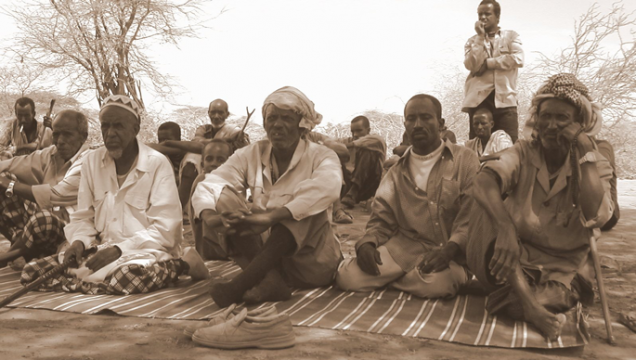
On 9 June 2015, the Rift Valley Institute Nairobi Forum held a public meeting to launch the report of the inception phase of the Forum’s research study, The Impact of War on Somali Men. In the six-month study, funded by the World Bank’s Learning On Gender In Conflict in Africa (LOGiCA) trust fund, researchers from […]
War Crimes and Statebuilding

The Rift Valley Institute’s Nairobi Forum, in partnership with Storymoja Africa, hosted a panel discussion with Rasna Warah (Kenya), author of War Crimes in Somalia, Michael Walls (UK) of UCL, author of A Somali Nation-State, to discuss Somali history, political transitions and foreign aid at the 2014 Storymoja Festival. The authors were joined on the […]
Political Settlements Research Programme Workshop

From 6 to 7 July 2015, the Rift Valley Forum hosted a two-day training workshop in Bukavu, in the eastern DRC, as part of the DFID-funded Political Settlements Research Programme (PSRP). The programme is implemented by a consortium led by Edinburgh University that includes the RVI. The workshop brought together ten researchers, eight of them […]
Closing Dadaab
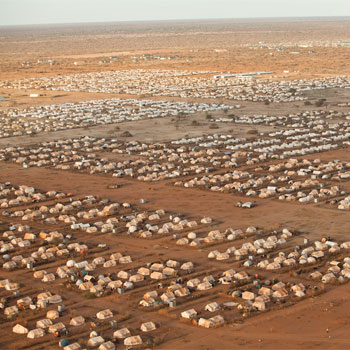
Following the devastating al-Shabaab attack on Garissa University on 2 April 2015, the Kenyan government announced the imminent closure of the Dadaab refugee camps and the repatriation of their 340,000 or more Somali residents. This is not the first time the government has threatened to close the camps, but outrage over increasing brutal al-Shabaab attacks […]
Sacred Causes
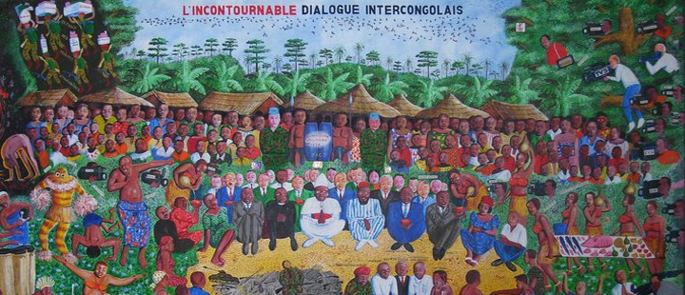
On 19 May 2015, the Rift Valley Institute Nairobi Forum, in collaboration with the Institut français de recherches en Afrique, hosted a discussion to launch the French edition of Philip Winter’s A Sacred Cause: The Inter Congolese Dialogue 2000-2003. The Inter Congolese Dialogue was the process of negotiations between the government in Kinshasa, opposition members, […]
Burundi at the crossroads

A deep malaise grips Burundi in this electoral season. President Pierre Nkurunziza’s April decision to seek a third term in contravention of what many Burundians consider the intent of the Constitution threw the country into weeks of political and popular turmoil, leaving scores dead. Despite ardent domestic and international calls for a postponement of the […]
Nuruddin Farah Reflects on Somali Cultural Losses in the Civil War
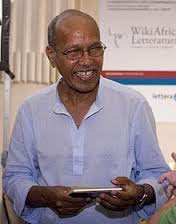
On Saturday 9 May, the Nairobi Forum hosted an evening with renowned Somali author Nuruddin Farah at the offices of the Rift Valley Institute. Nuruddin spoke about Somali cultural losses in the civil war. Nuruddin is the winner of the Neustadt International Prize for Literature and the Lettre Ulysses Award, and has been nominated for the […]
Storymoja: How Books and Art Create and Propagate National Values

On Saturday 19 September, Jama Musse Jama, Director of the Hargeysa Cultural Centre, was in Nairobi to speak on a panel at the Storymoja festival ‘How Books and Art Create and Propagate National Values’. The Hargeysa Cultural Centre was founded in 2014 to support the revival of Somali culture and arts. The Cultural Centre provides a unique […]
Extractives Development and Violence in Eastern Africa

It is boom time in eastern Africa. In 2016, its economies will be the continent’s fastest growing, as investors pour money into burgeoning oil, gas and minerals industries. In response, regional governments are planning massive networks of roads, rails and pipelines that will span East Africa, the Horn, the Great Lakes, and South Sudan. These […]
Storymoja: Historical Research and Fiction Writing
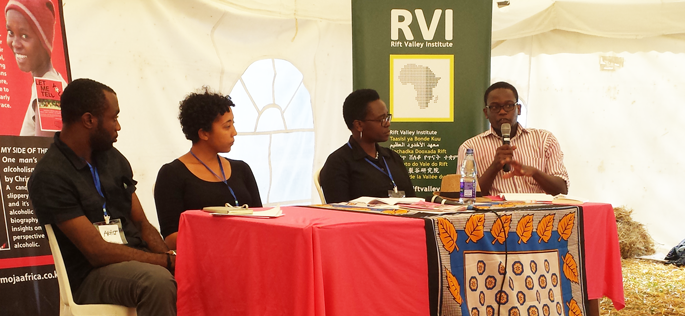
The Nairobi Forum, in collaboration with Kwani? and Storymoja, brought Ugandan writer Jennifer Nansubuga Makumbi—whose novel Kintu won the 2013 Kwani? Manuscript Prize—together with Zambian writer and 2015 Caine prize winner, Namwalli Serpell, and Nigerian author and editor, Emmanuel Iduma, for a discussion on historical research and the uses of history in fiction writing. Ngala […]
